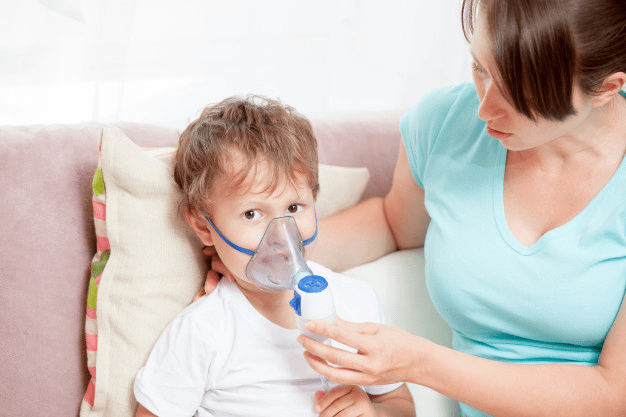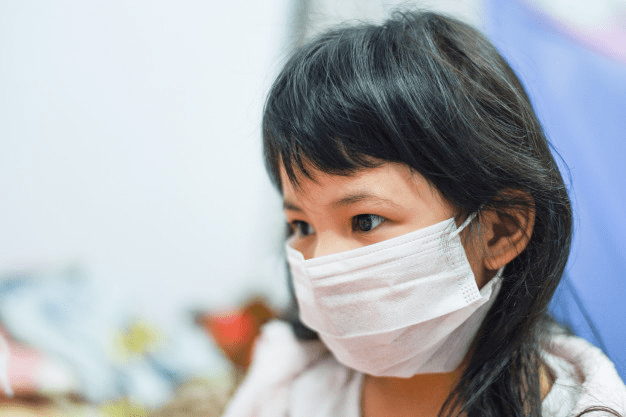Face Mask CAN Increase the Risk of Catching Coronavirus
Face Mask CAN Increase the Risk of Catching Coronavirus
Are you wearing your mask properly? Experts have advised people to take preventive measures and protection count as the killer coronavirus shows no sign of slowing. Before chucking away, these constitute frequently washing your hands and coughing or sneezing into a tissue.
So are you one of those who wear face masks in the hope that it might stop the spread of the new coronavirus? Whether it’s a small village or UK, the rush to buy the protective gear has given rise to a few pharmacies to run out. Especially if they’re not worn properly, experts have previously declared that face masks contribute little in the way of protection. However, one medic has signed a warning that they may actually create the situation worse and boost your risk of catching Covid-19.
What is Coronavirus?
Ranging from the common cold to Severe Acute Respiratory Syndrome (SARS), Cornovirus is a large family of viruses that can cause infections. With the cause of pneumonia such as lung lesions, the virus attacks the respiratory system.
Whereas, the other ones that cause Middle East Respiratory Syndrome fare more severe and some of the virus types can cause less serious disease.
Throughout the world, an outbreak of a similar virus, SARS killed more than 900 people in 2003.
Well, if you are healthy, you need not have a mask but if you feel sick and unwell, it is better you wear your mask wherever you go. There’s no proof in it that wearing masks on healthy people will save them. Wearing them incorrectly can increase infection too as they tend to touch their face more often.
When should you wear a mask? The time when you feel sick or you leave the house. If you suffer from flu or think you have Covid, that’s when you’d put on a mask to protect the people around you. Also, if you stay at home and you don’t feel good, you should wear a mask to protect your family members.
There are other experts who have warned that face masks aren’t much use and might signify a “false sense of safety”. The International Air Transport Association (IATA), David Powell, a doctor and medical advisor even stated a warning that face masks do little to stop the spread of the microorganisms on the planes. The professional also told that the air in a plane cabin exists through the filters-the similar kind implemented in the hospital and medical healthcare centres-eliminating upwards of 99.97 per cent of viruses.

One is more likely to catch it through the physical contact with other passengers and since the virus can’t survive long seats and armrest.
And if you think gloves can save you from such hazardous health situation, you are again falling into the “false sense of security”. Gloves are although the worst culprits for this as you will be touching everything you would normally touch through your hands and you probably won’t think about cleaning them before. Let’s take an example, touching your face, rolling your hands through your hair.
It creates an even better environment for the microbes to rise and when your hands get hot and you feel sweat inside your hands and palms while doing any physical activity.
How Can You Protect Yourself from Coronavirus?
With Britain seeing more cases in people who aren’t linked to outbreaks overseas, the new coronavirus is continuously sweeping its way worldwide.
What are its Symptoms?
Covid-19 can include:
ü A Cough
ü A High Temperature
ü Difficulty in Breathing
Whether you have a coronavirus or a different cold-causing virus, you won’t be aware of such in most cases. Although it can cause pneumonia, specifically in older people, people with heart disease or people with weak immune systems, if a coronavirus infection spreads to the lower respiratory tract.
Along with anything the virus is on as well as infected breath, coughs or sneezes, it is incredibly contagious and is spread through contact.
The foremost and the best method to avoid catching any form of coronavirus is to practice good hygiene. You can even help protection by staying home if you are not well and prevent keeping contact with others if you have cold-like symptoms.
Before putting the mask on your face, you must follow strict hygiene rules concluding cleaning hands with alcohol-based hand rub or soap and water as explained by the United Nations agency.
They even say to “Cover the mouth and nose through masks and also to be aware of no gaps between your face and the mask”.
As soon as it was damp and could not be used again, the mask requires to be transformed.

How to Remove the Mask?
- Do not touch the front of the mask
- Remove it from behind
- Discard it in a closed bin immediately
- Wash your hands with alcohol-based hand rub or soap and water
How Does Cornovirus Spread?
The rapid increase of Coronavirus and the illness it causes known as Covid-19 has sparked the alarm worldwide. With a rise in confirmed cases, the countries are grappling and also the WHO (World Health Organisation) has declared a global health emergency. For the disruptions to daily life that will be necessary if the coronavirus spreads amongst the communities, the Centers for Disease Control and Prevention (CDC) is advising people to get prepared accordingly.
It is also said that the virus can spread from one person to the other. It is often likely to spread through droplets of saliva carried in the air for up to six feet or so when an infected person coughs and sneezes. When you breathe, land on surfaces that people touch, transferring when shaking hands or sharing the drink with someone who has the virus can be transmitted through the viral particles.
It is obvious that if a person is not well and suffering through disease, there are cases when people who do not feel sick have the virus and can spread it through.

